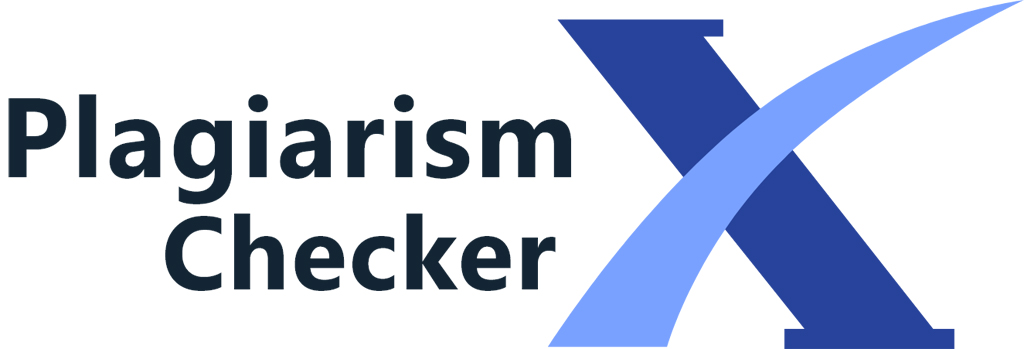Comparison of Mathematical Reasoning Ability and Learning Interest of Students through the ARIAS Learning Model and Discovery Learning at State Junior High School 12 Tasikmalaya
DOI:
https://doi.org/10.56874//jmtl.2025.v3.i2/2626/5Keywords:
ARIAS, discovery learning, reasoning ability, learning interestAbstract
This study aims to determine which learning model ARIAS (Assurance, Relevance, Interest, Assessment, Satisfaction) and Discovery Learning (DL) is more effective in improving students’ mathematical reasoning ability, as well as to examine students’ learning interest in each model applied. The research method used was an experimental method, with the population being all eighth-grade students at SMP Negeri 12 Tasikmalaya. The sample was taken randomly, with class VIII C assigned as the first experimental group using the ARIAS learning model and class VIII A as the second experimental group using the DL model. Data collection in this study was conducted through reasoning ability tests, with the instruments used being test items and questionnaires. Based on data processing, analysis, and hypothesis testing, the conclusions are as follows: (1) students’ reasoning ability using the ARIAS learning model is better than those using the DL model, (2) students’ learning interest in the first experimental class with the ARIAS model falls into the medium category, (3) students’ learning interest in the second experimental class with the DL model also falls into the medium category.
References
Anjariyah, D., & Karlina, L. (2016). Pengaruh model pembelajaran ARIAS (assurance, relevance, interest, assessment, and satisfaction) berbantu media lingkungan terhadap minat dan hasil belajar matematika siswa SMP pada materi aritmetika sosial. Prosiding Konferensi Nasional Penelitian Matematika Dan Pembelajarannya, 353–362.
Bergqvist, T. (2005). How students verify conjectures: Teachers’ expectations. Journal of Mathematics Teacher Education, 8(2), 171–191. https://doi.org/10.1007/s10857-005-4797-6
Chase, K., & Abrahamson, D. (2018). Searching for buried treasure: uncovering discovery in discovery-based learning. Instructional Science, 46(1), 11–33. https://doi.org/10.1007/s11251-017-9433-1
Christianidis, J. (2021). Analytical Reasoning and Problem-Solving in Diophantus’s Arithmetica : Two Different Styles of Reasoning in Greek Mathematics. Philosophia Scientae, 25–3. https://doi.org/10.4000/philosophiascientiae.3235
Edi, S., & Rosnawati, R. (2021). Kemampuan berpikir kritis siswa dalam pembelajaran matematika model discovery learning. JNPM (Jurnal Nasional Pendidikan Matematika), 5(2), 234–246. https://doi.org/10.33603/jnpm.v5i2.3604
Ennis, R. (2011). Critical thinking: Reflection and perspective Part II. Inquiry: Critical Thinking across the Disciplines, 26(2), 5–19. https://doi.org/10.5840/inquiryctnews201126215
Febriyanti, C., & Seruni, S. (2015). Peran minat dan interaksi siswa dengan guru dalam meningkatkan hasil belajar matematika. Formatif: Jurnal Ilmiah Pendidikan MIPA, 4(3), 245–254. https://doi.org/10.30998/formatif.v4i3.161
Geiger, V., Goos, M., & Forgasz, H. (2015). A rich interpretation of numeracy for the 21st century: a survey of the state of the field. ZDM, 47(4), 531–548. https://doi.org/10.1007/s11858-015-0708-1
Hamalik, O. (2009). Kurikulum dalam Pembelajaran (1st ed.). Bumi Aksara.
Hendriana, H., Rohaeti, E. E., & Sumarmo, U. (2017). Hard skills dan soft skills matematik siswa. In Bandung: Refika Aditama.
Jeannotte, D., & Kieran, C. (2017). A conceptual model of mathematical reasoning for school mathematics. Educational Studies in Mathematics, 96(1), 1–16. https://doi.org/10.1007/s10649-017-9761-8
Keller, J. M. (2012). ARCS model of motivation. In Encyclopedia of the Sciences of Learning (pp. 304–305). Springer. https://doi.org/10.1007/978-1-4419-1428-6_217
Kurniawati, E., Hartanto, H., & Zamzaili, Z. (2017). Pengaruh model pembelajaran assurance, relevance, interest, assesment, satisfaction (arias) integratif dan kemampuan awal dalam meningkatkan pemahaman konsep dan pemecahan masalah matematika siswa sekolah menengah pertama di kepahiang. Jurnal Pendidikan Matematika Raflesia, 2(2), 174–187. https://doi.org/10.31186/jpmr.v2i2.3970
Lessani, A., Yunus, A., & Bakar, K. (2017). Comparison of new mathematics teaching methods with traditional method. People: International Journal of Social Sciences, 3(3), 1285–1297. https://doi.org/10.20319/pijss.2017.32.12851297
Mabhoza, Z., & Olawale, B. E. (2024). Chronicling the Experiences of Mathematics Learners and Teachers on the Usage of Guided Discovery Learning (GDL) in Enhancing Learners’ Academic Performance. Research in Social Sciences and Technology, 9(1), 141–155. https://doi.org/10.46303/ressat.2024.8
Mulyatiningsih, E. (2011). Riset terapan bidang pendidikan dan teknik. UNY press.
Nasional, D. P. (2007). Kajian kebijakan kurikulum mata pelajaran Matematika. In Jakarta: Badan Penelitian dan Pengembangan Pusat Kurikulum Depdiknas.
NCTM. (1989). Curriculum and evaluation standards for school mathematics. National Council of Teachers of Mathematics.
Ningsih, E. R. (2023). Proses Berpikir Siswa dalam Mengajukan Dugaan Matematika berdasarkan Pemrosesan Informasi. Universitas Islam Sultan Agung Semarang.
Noviyana, I. N., Rochmad, R., & Dewi, N. R. (2020). Student Mathematical Communication Ability Viewed from Self-Confidence in the ARIAS Model Nuanced Ethnomathematics. Unnes Journal of Mathematics Education Research, 9(1), 106–113.
Prasasti, D. E., Koeswanti, H. D., & Giarti, S. (2019). Peningkatan keterampilan berpikir kritis dan hasil belajar matematika melalui model discovery learning di kelas IV SD. Jurnal Basicedu, 3(1), 174–179.
Rahman, M., & Amri, S. (2014). Model Pembelajaran ARIAS (Assurance, Relevance, Interest, Assessment, Satisfaction) Terintegratif. Jakarta: PT Prestasi Pustakaraya.
Richards, T., & Samuels, S. (2023). Exploring the Efficacy of Guided Discovery Learning in Improving Algebraic Thinking Skills. Int J Sci Res, 11(7), 1784–1792.
Rifqi, A., Rochmad, R., & Suyitno, H. (2021). Critical thinking skills reviewed from logical-mathematical and musical intelligence on process oriented guided inquiry learning. Unnes Journal of Mathematics Education Research, 10(A), 175–183.
Ruseffendi. (2010). Dasar-dasar penelitian pendidikan dan bidang non-eksakta lainnya. Tarsito.
Schiefele, U. (1991). Interest, learning, and motivation. Educational Psychologist, 26(3–4), 299–323. https://doi.org/10.1080/00461520.1991.9653136
Shadiq, F. (2019). Pembelajaran matematika; cara meningkatkan. Graha Ilmu.
Simamora, R. E., & Saragih, S. (2019). Improving Students’ Mathematical Problem Solving Ability and Self-Efficacy through Guided Discovery Learning in Local Culture Context. International Electronic Journal of Mathematics Education, 14(1), 61–72. https://doi.org/10.12973/iejme/3966
Sirait, E. D. (2016). Pengaruh minat belajar terhadap prestasi Belajar Matematika. Formatif: Jurnal Ilmiah Pendidikan MIPA, 6(1), 35–43. https://doi.org/10.30998/formatif.v6i1.750
Sternberg, R. J., & Sternberg, K. (2017). Cognitive Psychology (7th ed.). Wadsworth Cengage Learning.
Syamsuddin, A. (2021). Mathematics learning interest of students based on the difference in the implementation of model of thematic learning and character-integrated thematic learning. European Journal of Educational Research, 10(2), 581–591. https://doi.org/10.12973/EU-JER.10.2.581
Weber, K., & Alcock, L. (2004). Semantic and syntactic proof productions. Educational Studies in Mathematics, 56(2–3), 209–234. https://doi.org/10.1023/B:EDUC.0000040410.57253.a1
Yusuf, N., & Pangestu, D. (2021). Penerapan Model Pembelajaran ARIAS Terhadap Hasil Belajar Matematika Siswa Kelas II Sekolah Dasar. Jurnal Pendidikan Sekolah Dasar Ahmad Dahlan, 8(1), 1–7. https://doi.org//10.26555/jpsd.v8i1.20303
Downloads
Published
How to Cite
Issue
Section
License
Copyright (c) 2025 Nadya Savona Rubianti, A A Gde Somatanaya, Hetty Patmawati

This work is licensed under a Creative Commons Attribution-NonCommercial-ShareAlike 4.0 International License.







